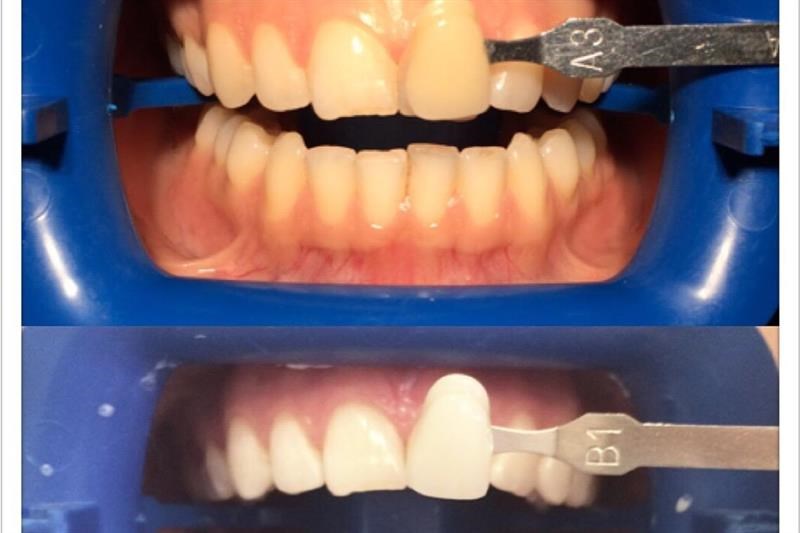1 in 4 Brits use an illegal teeth whitener
Published: 26/10/2017
Recent research has found how one in four adults (24%) have undergone teeth whitening, with almost half (45%) using an illegal provider.
Recent research has found how one in four adults (24%) have undergone teeth whitening, with almost half (45%) using an illegal provider.
The survey – conducted by White Glo – reveals 75% are unhappy with the colour of their teeth and with professional whitening costing up to £1,000, many are looking for alternatives to achieve a perfect smile.
Considering this research, it is essential for consumers to be educated on how they can safely emulate their favourite celebrities white smile.
One Facebook user from Glasgow explains her own horror story when she visited a local beautician’s home for a tooth whitening treatment. 'I was there for just over an hour and every 10 to 15 minutes she would top up the gel on my teeth. No questions were asked such as my age, if I’d had whitening before or any allergy tests. The next morning, I woke up and my lips were stuck together and I looked like I’d been in a boxing ring. The woman said it was normal and that I should just put lipstick on and I would be fine. My whole mouth felt like it was on fire and I had about ten blisters. It was a lesson learnt and I urge anyone to opt for a peroxide free treatment instead.'
With the popularity of teeth whitening showing no signs of slowing down, instead of warning Brits away from the beauty phenomenon, it is time to educate the UK on how to safely achieve the results they so clearly desire and avoid any Halloween horror stories of their own.
In this month's issue of Dental Nursing, dental hygienist Anna Middleton talks about the need to discuss teeth whitening with patients.
Every team member benefits from understanding the regulations and the possibilities with whitening – both from a ‘practice profit’ points of view as well as the management of patient expectations. There is an onus of all practice team members to able to discuss treatment options whilst building a relationship and trust with each and every patient. And, because the dental nurse is very often the role within the team that has as much direct communication with the patient while they are in the chair as the dentist, questions about treatment will no doubt be asked of them. It is therefore key that a dental nurse:
- Understands the regulations
- Understands what procedures are offered within the practice – and by whom
- Recognises who is suitable as well as who is not
- Knows which local practices are the competition
- Can explains costs to potential ‘whitening’ patients
- Understands what financing (if any) the practice offers
- Has access to ‘before and after’ photos that patients have given consent to be used and can have the conversation about the procedure and what it can (and cannot) achieve.
To make sure you don't miss out every month on key topic relevant to you (plus a CPD article in EVERY issue), subscribe today – https://www.magsubscriptions.com/healthcare-dental...
Author: Julie Bissett









.jpg?width=150&height=100&scale=canvas)



